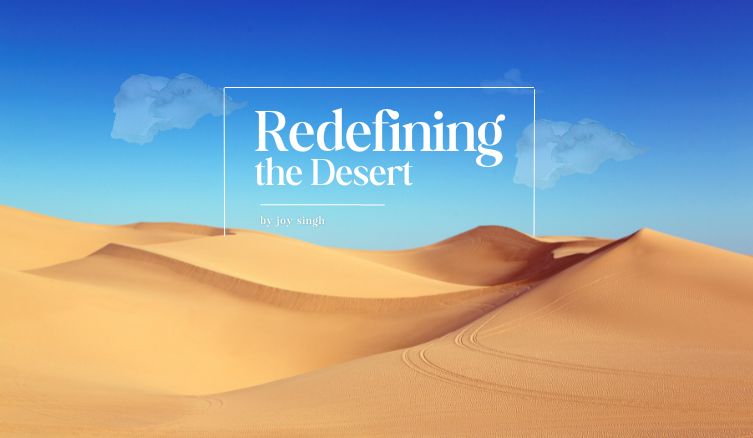
In the New Testament, the word desert is used most frequently in the gospel of Mark. When we think of a desert, we see an arid land with extreme circumstances during the day, scorching and freezing at night. Desert, metaphorically speaking, symbolizes hardships, trials, isolation, thirst, and hunger, aka—the extreme circumstances of life. I don’t know if you have ever seen a desert. You can stand on a dune or a raised surface; all you can see is sand or dry and weary land for miles and miles. There is no oasis in sight. It’s hard to gauge directions. It’s easy to get lost. In a nutshell, the desert or wilderness is a place of suffering.
But in the opening scene of Mark (1:4-5), you see a different portrayal of a desert. You see John the Baptist preaching the message of getting right with God and paving the way for Jesus to begin his ministry. John is the forerunner to Jesus. John could have chosen any place: marketplaces, the town square, the busy streets. But he chooses desert. Life in the extremity of the desert was John’s choice. He did not succumb to social pressure, nor did the scripture portray it as an insufferable circumstance for John.
While a desert represents hardships and difficulties, it also represents God’s call to freedom. John’s preaching in the desert and people going out in the wilderness to meet him echoes God’s redemption of Israel from Egypt into the desert or wilderness. Egypt represented slavery. There was comfort and good food, but worship of Israel’s God was not permitted. God’s call to the desert requires us to follow him by leaving all our idols behind. Our culture and our surroundings promote idolatry. Anything and everything that gives us ultimate purpose, meaning, happiness, and satisfaction apart from Christ is idolatry. God’s call into the desert is an invitation to freedom from idolatry and initiation into faith.
I recently met a young man who just emerged from a year-long battle with an extreme type of cancer. I went there as the pastor to encourage him, but I came back inspired, seeing how he had embraced his desert experience and shared how he drew closer to God through it.
One of the reasons John the Baptist’s messages become attractive is his response to the desert. He transformed the desert into a delight for those who heard. He redefined suffering as a sacrifice for the gospel. And the result was that many came and confessed their fallenness and need for the gospel. People are looking for extraordinary lives. People are looking for freedom. Someone needs to show them the way, even if it is through a desert. Jesus’s redemption comes not through wealth, influence, or affluence but through the cross.
You might be going through a desert experience with loss and hardships. I don’t want to invalidate that or cheapen the struggle. The struggle is real. But I want to encourage you to consider this suffering an opportunity to serve by leaning on God and living a counter-cultural, desert-embracing life.
On the other hand, some of you are afraid to step out. Egypt has given you much comfort. Those comforts are temporary. But the desert, although rugged and arid, does provide peace and eternal joy. No matter who and where you are, step out and follow him through the desert of your life. And we will transform a desert into a delight. And that’s the paradox of the gospel.